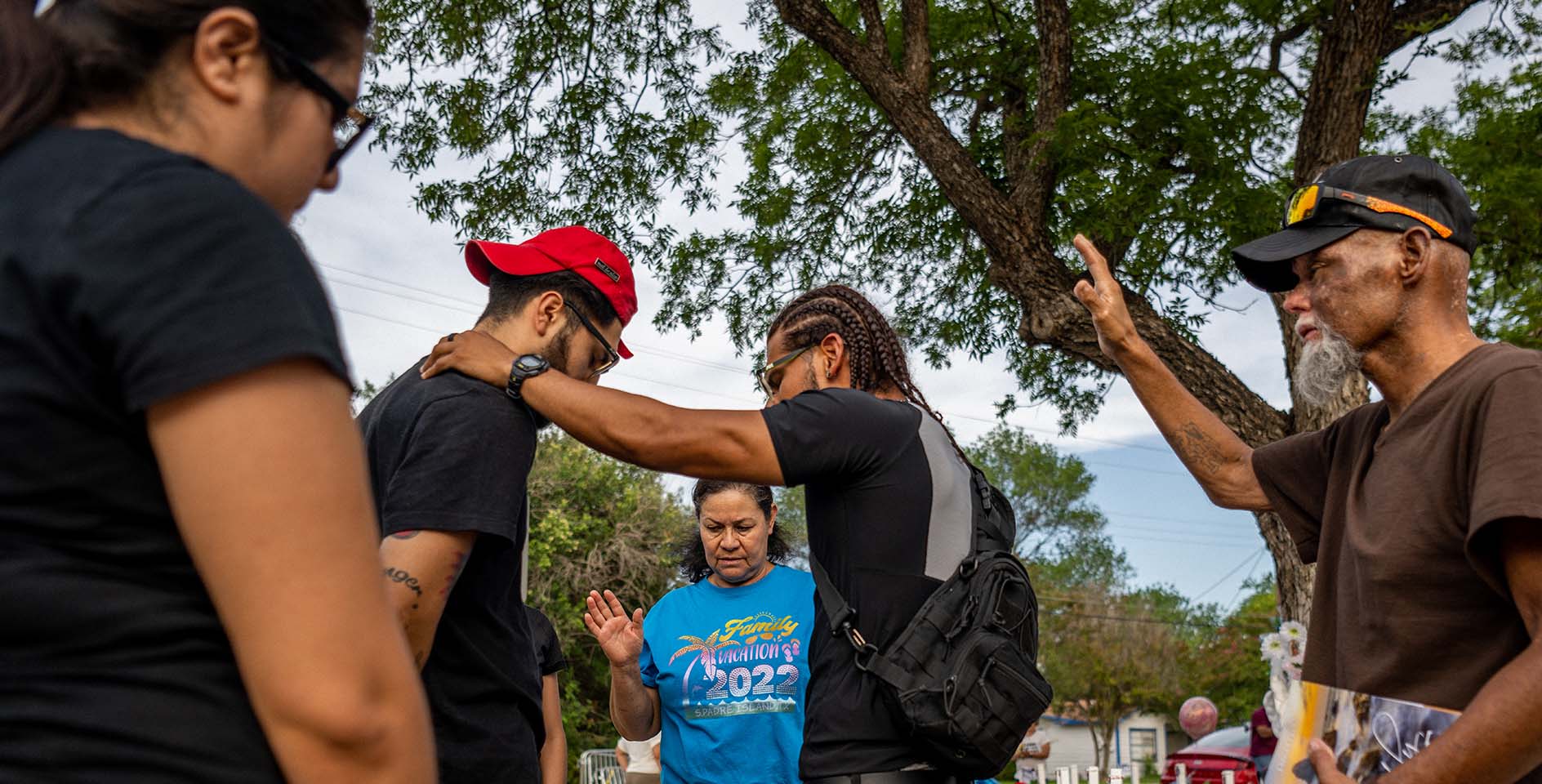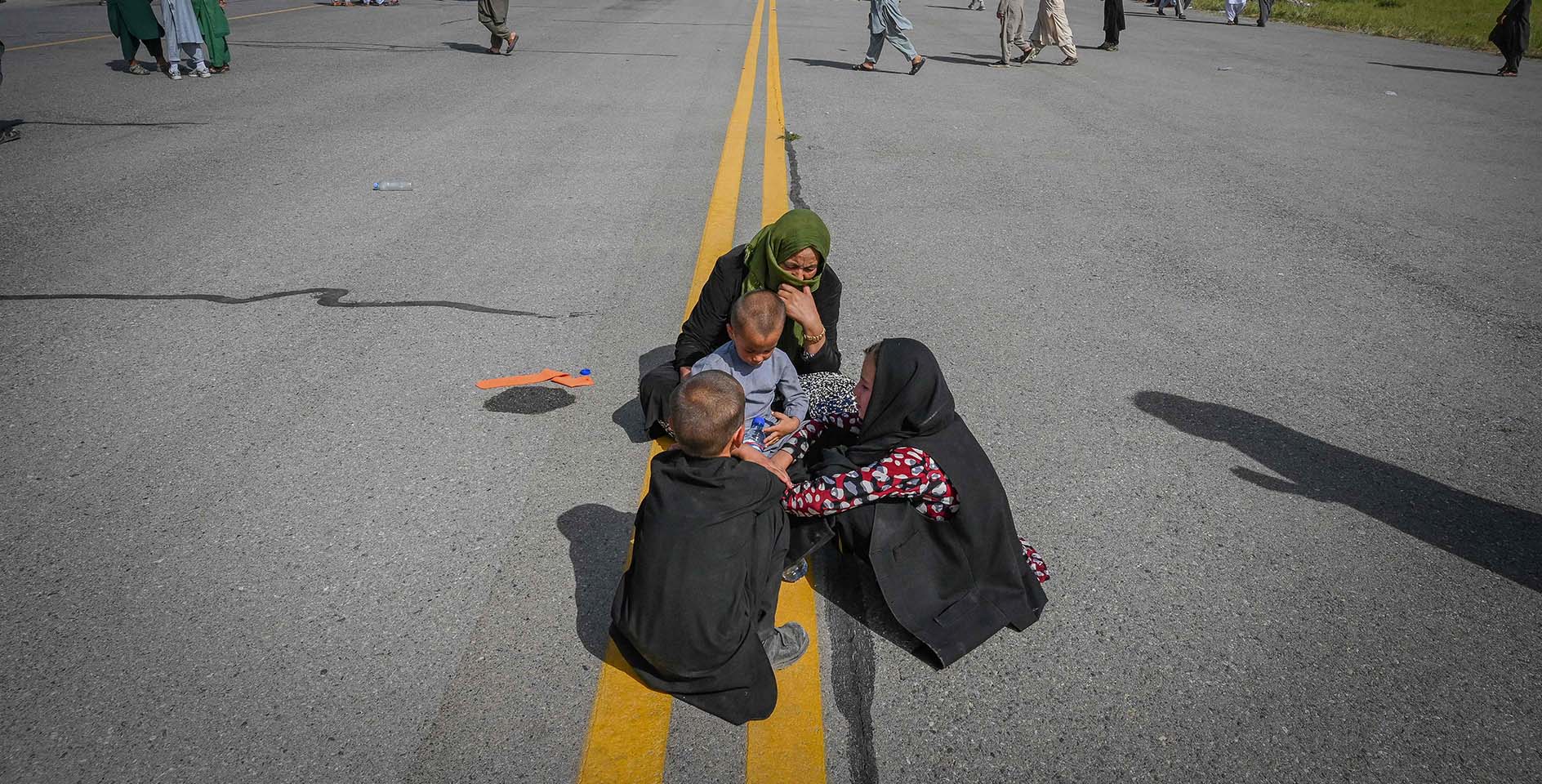In a span of just 10 days, the United States was rocked by the news of two mass shootings. The first, a racially motivated crime, occurred in Buffalo, New York, killing 10 people. The most recent tragedy occurred at an elementary school in Uvalde, Texas, and resulted in the deaths of 19 students and 2 adults. The nation finds itself, once more, discussing and debating what policies and prevention are needed to stop these atrocities and how to do so in a way that respects our Second Amendment rights. Christians should be ready to enter into those complex discussions with a perspective that is governed by a desire to honor God through obedience to Christ and protect the vulnerable. In the midst of these crucial conversations, it’s also important that we weep with those who weep while being forced to reckon with the inevitability of our own deaths.
Weeping in the face of sorrow
Undoubtedly, when Paul instructed the churches in Romans 12:15 to “weep with those who weep,” he envisioned the example of Jesus at Lazarus’ tomb. While the Son of Man fully trusted in the Father and did not waver regarding his goodness and sovereignty—even amid the suffering and loss of Lazarus—he still wept. Jesus’ perfect knowledge did not prevent him from expressing perfect compassion and grief in the face of deep personal loss. As those who follow the Savior who wept over the brokenness that sin brought into the world, we too, when we take sin and its effect on our world seriously, will be moved to mourn with the mourners. In doing so, we imitate Christ, the Incarnate God who is near to those who are brokenhearted (Ps. 43:18) grappling with suffering that is impossible for our finite minds to make sense of.
While we weep with those who weep and seek to bring comfort to others as those who have been comforted by the God of all comfort (2 Cor. 1:3-4), we will inevitably be reminded of our own mortality as we come face to face with the reality of death. And, if we are not, Jesus believed we should be. This is seen in a passage from Luke’s Gospel. When Jesus encountered a group of people asking questions about the fate of the Galileans who perished at Pilate’s hand (Luke 13:1-5), he quickly redirected their inquiries.
Facing our mortality
As one reads the passage, an underlying assumption about the crowd emerges. Based on Jesus’ answer, it would appear that the crowd presumed that there was something inherently defective about those who suffer in this world. Otherwise, in their mind, why would such a horrible thing be allowed to happen? That was the only way they could think to make sense of such a tragedy. Jesus, however, answered by saying that there was nothing substantive or morally different between the Galileans who perished under Pilate and those who did not. The evil committed by Pilate against those Galileans was not due to something wrong with them.
Jesus then went on to make the same point in the passage by highlighting another tragic accident in Siloam, where a tower had fallen on a group of 18 people, killing all of them. Those that survived in Siloam were not more righteous than those who perished. In other words, one’s goodness or badness is not the sum total explanation for “why” any given tragedy occurs. Jesus rebuked the people for what was implied in their search for an answer to the evil they experienced and turned their question on its head by ending his comments with a warning of repentance.
Those that addressed Jesus were hoping that they could establish criteria for the type of people that bad things happen to, but Jesus wouldn’t allow it. He would not let them rest in the idea that somehow they could, through their own decisions and effort, avoid the horrors of this life in a fallen world. Instead, what they could do is repent and prepare for eternity so that they would not perish forever. In the Old Testament, the author of Ecclesiastes emphasizes the importance of considering our mortality: “It is better to go to the house of mourning than to go to the house of feasting, for this is the end of all mankind, and the living will lay it to heart” (7:2). The solace of understanding this on the other side of the cross is that those who trust in Christ will ultimately pass through the valley of death into a life of neverending feasting and joy (Ps. 23; Ps. 16:11).
Hope amid the horror
While we dwell in this broken world and weep with those who weep, we must not assume that somehow we are or can be immune to the sufferings that others experience. Mankind’s rebellion against God has resulted in a good world gone bad because of the curse of sin. Our only hope of escaping the curse that sin has brought is for someone to bear the curse for us. This is what Jesus, the Son of God, born of woman, born under the law, does for all who would place their trust in him (Gal. 4:4). And this is the truth we point to as we love others and meet their physical needs in the midst of terrible sorrow.
Jesus, as the only sinless, innocent, stainless human to ever live, came and took on our sin that we might become the righteousness of God in him (1 Cor. 5:21). He bids us to come to him in our grief and under the weight of unbearable burdens (Matt. 11:28). He alone has conquered death, and the precious promise we have is that all who are in him will be raised like him when he returns. It is from this posture of hope amid the horrors of this world that we can face our mortality and come alongside others to minister to them and mourn with them in their darkest moments.










